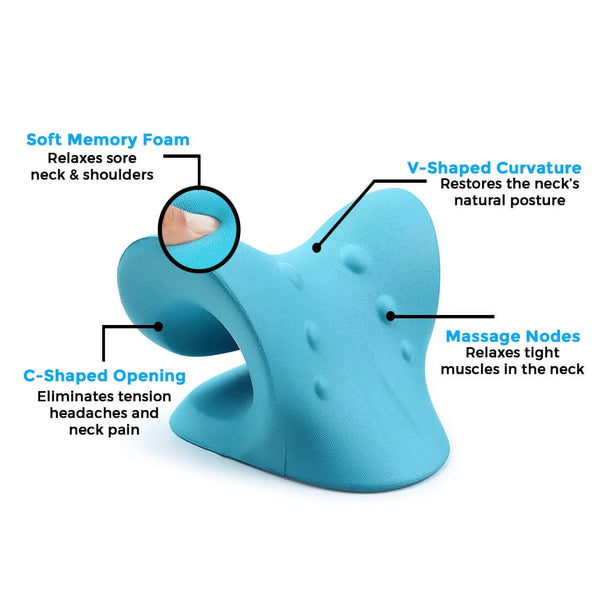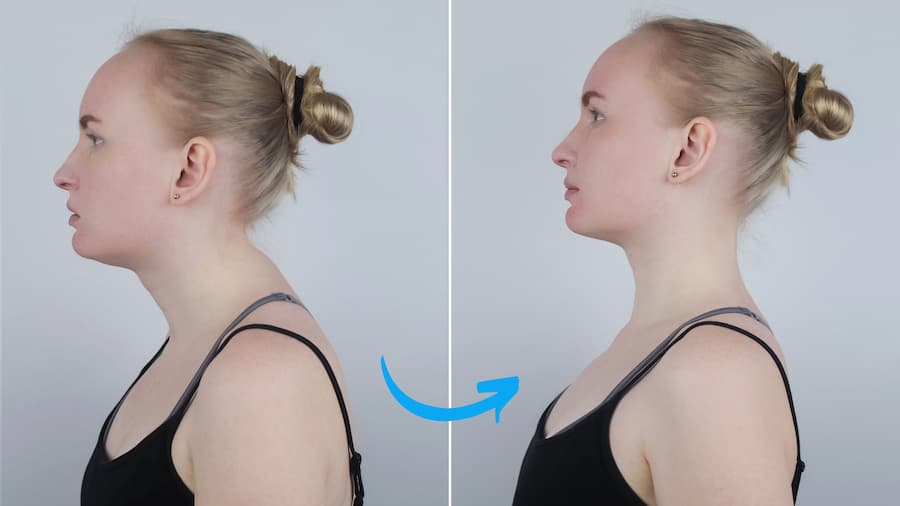Neck Cloud: Ergonomic Design for Optimum Comfort and Discomfort Reduction
Neck Cloud: Ergonomic Design for Optimum Comfort and Discomfort Reduction
Blog Article
The Influence of Stress And Anxiety on Neck Discomfort: Methods for Decreasing Stress and Pain
In today's busy world, it's no key that tension has ended up being a common factor in the start and exacerbation of neck discomfort. Join us on a trip to unravel the influence of tension on neck discomfort and discover reliable methods to reduce discomfort and boost general quality of life.
Recognizing Stress-Related Neck Discomfort
Stress-related neck discomfort can manifest as stress, rigidity, or discomfort in the neck and shoulder location. The connection in between stress and anxiety and neck discomfort exists in the body's physical reaction to stress, which can result in muscle mass tension and rigidity in the neck muscle mass.

Identifying Common Tension Locations
Often experienced by individuals under tension, tension locations in the body can provide useful insights right into the physical indications of psychological stress. One usual stress location is the neck, where stress and anxiety frequently shows up literally. Tension migraines, stiff neck muscular tissues, and restricted range of motion are typical symptoms of stress-related neck stress. The shoulders are another usual area where tension accumulates. Tension can cause the muscle mass in the shoulders to tighten, bring about pain and discomfort. Furthermore, the top back is susceptible to tension build-up, specifically in people that experience persistent stress and anxiety. Poor posture and long term resting can aggravate tension in this field. The jaw is additionally a common location for stress-related stress, as lots of people clinch their jaw or grind their teeth when stressed. Being mindful of these usual stress locations can aid people identify the physical signs of stress and anxiety and take steps to address them prior to they intensify into persistent pain or pain.
Carrying Out Leisure Strategies
To effectively handle stress-related tension in the body, carrying out relaxation methods is essential. Leisure methods are useful devices for reducing neck discomfort triggered by tension. Deep breathing exercises can assist soothe the mind and unwind stressful muscular tissues in the neck and shoulders (neck cloud). Exercising mindfulness reflection can additionally be advantageous in minimizing stress and anxiety and promoting Continued relaxation. Modern muscle relaxation, where you methodically strained and after that relax different muscle mass groups, can release built-up stress in the neck area. In addition, tasks like yoga exercise and tai chi integrate both physical activity and relaxation, making them effective practices for reducing anxiety and neck pain. Taking regular breaks throughout the day to stretch and take a break can avoid muscular tissue stiffness and tension from building up. By integrating these relaxation techniques into your daily routine, you can help handle tension degrees, decrease tension in the neck, and alleviate discomfort connected with stress-induced neck discomfort.
Incorporating Self-Care Practices
Including self-care methods is essential for preserving overall wellness and handling stress-related neck discomfort properly. Taking part in regular physical task, such as gentle stretching exercises or yoga, can help reduce stress in the neck click resources and shoulders. Exercising good position throughout the day and taking regular breaks from extended sitting or display time can also stop pressure on the neck muscular tissues.
Furthermore, prioritizing sufficient sleep and developing a constant sleep routine can contribute considerably to lowering stress levels and advertising relaxation. Developing a relaxing going to bed regimen, such as checking out a publication or taking a cozy bath, can aid prepare the body and mind for restful rest. In addition, keeping a well balanced diet regimen abundant in nutrients and staying moisturized can support overall health and wellness and decrease inflammation that may intensify neck pain.
Including mindfulness techniques, such as deep breathing workouts or meditation, can assist manage tension and advertise relaxation. Taking some time for oneself, involving in leisure activities, and establishing limits to safeguard personal time are additionally important aspects of self-care that can contribute to minimizing stress and easing neck discomfort.
Seeking Specialist Help
Just how can individuals effectively attend to persistent neck discomfort that is affecting their day-to-day life and well-being? Seeking professional aid can be a crucial step in handling and reducing neck discomfort.
Chiropractics physician useful source specialize in spine manipulation techniques to boost alignment and minimize stress in the neck location. Physiotherapists provide targeted exercises and stretches to strengthen muscle mass, enhance flexibility, and boost total neck feature. Orthopedic professionals can supply sophisticated clinical interventions such as injections or surgical choices for severe instances of neck discomfort.
Verdict

Stress-related neck pain can manifest as tension, stiffness, or pain in the neck and shoulder location. The connection in between stress and neck discomfort exists in the body's physiological action to stress, which can result in muscle mass tension and rigidity in the neck muscular tissues. Tension migraines, tight neck muscular tissues, and restricted variety of activity are common signs and symptoms of stress-related neck stress. By integrating these leisure techniques into your everyday regimen, you can help handle tension degrees, decrease tension in the neck, and minimize pain associated with stress-induced neck discomfort.

Report this page